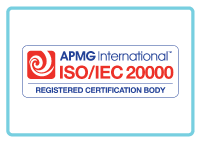- About Us Show more
- About Us Show more
-

- UNICERT offers quality value-added assessment services bringing consistency, optimisation and efficiency to improve clients’ management systems, with minimal disruption and cost to the operations.
- Find out more
-
- Services Show more
-

Certification
Formally confirming that your products and services meet all trusted external and internal standards.
Learn More
Inspection
Validating the specifications, value and safety of your raw materials, products and assets.
Learn More
Testing
Evaluating how your products and services meet and exceed quality, safety, sustainability and performance standards.
Learn More
Training
Equip your team with the vital training they need to remain at the top of their profession.
Learn More
-
- Services Show more
- Information Show more
- Information
Show more
-

- For more details of UNICERT and accreditation mark information please communicate by email: info@unicert.co.uk
-
- Standards & Industries Show more
- Contacts Show more
-
-
Global Reach
- UNICERT is the industry leader with many regions in the world. Whether your business is local or global, we can ensure your products meet quality, health, environmental, safety, and social accountability standards for virtually any market around the world.

-
-
- Worldwide Show more

ISO/IEC 27001:2013
Digital Age Risk Management
In order to derive optimal benefit from our information systems we need to have an information security management system to assure the safeguarding of vital information in our organizations. Although most organizations employ some information security controls, without the proper implementation of an overall information security management system, these controls may not be fully effective. Hence, there is a need to introduce proper security measures for controlling information assets.
What is ISO 27001?
ISO 27001 is a specification for an information security management system (ISMS). An ISMS is a framework of policies and procedures inclusive of all legal, physical and technical controls involved in an organization’s information risk management processes. ISO 27001:2013 is the current version of ISO 27001. By achieving an ISO 27001 certification an organization demonstrates that it has identified risks to its information security and implemented systemized controls to limit possible damage to the organization.
Why implement ISO 27001?
Implementing the ISO 27001 standard increases the security of systems and information assets through the implementation of appropriate security controls. The standard uses a process approach for establishing, implementing, operating, monitoring, reviewing, maintaining and improving the ISMS.
Who can benefit from ISO 27001?
ISO 27001 is suitable for any organization, large or small, in any sector or part of the world. The standard is particularly suitable where the protection of information is critical, such as in the finance, health, public and IT sectors.
What are the key benefits of using ISO 27001?
- Keeps confidential information secure
- Provides customers and stakeholders with confidence in how risks are managed
- Allows for secure exchange of information
- Helps in compliance with other regulations
- Gives competitive advantage
- Enhances customer satisfaction that improves client retention
- Consistency in the delivery of service or product
- Manages and minimizes risk exposure
- Builds a culture of security
- Protects the company, assets, shareholders and directors
- Compliance with business, legal, contractual and regulatory requirements
- Reduces need for frequent audits
- Independent identification of risks to information security and implementation of systemized controls to limit damage
- Proves commitment to information security
- Regular assessment process helps to continually monitor performance and induce improvements
CERTIFICATION
ACCREDITATION









Copyrights © 2020 All Rights Reserved.


